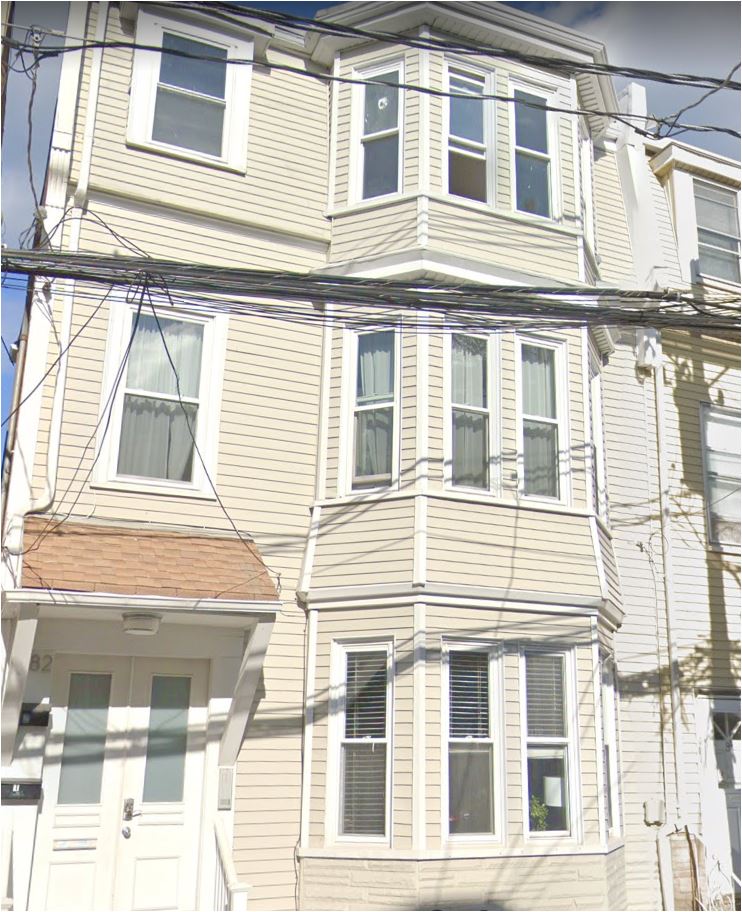by AMIR SHAHSAVARI
Despite the end of another cold winter in Massachusetts, many small property owners still feel the chill of hostile housing proposals, which would violate their property rights. Among the proposals heard on Beacon Hill, there is one proposal, in particular, that remains more ominous due to its silent progression in the state legislature since last year without sufficient alarm raised by lawmakers and the public. In fact, a version of this silent killer actually passed in the House and Senate in 2021 and would have become law had Governor Charlie Baker not vetoed it at the end of the legislative session, thereby depriving proponents of the opportunity to override his veto. What the governor recognized, which evaded some other officials, was that the proposal would have imposed a government mandate dictating when, how, and to whom property owners could sell their buildings.
When this proposal reappeared during the current legislative session, SPOA members testified on behalf of small property owners before the Joint Committee on Housing on October 12, 2021 to oppose the enacting of a mandatory restriction of eligible buyers for their properties. This is often called a “tenant right of first refusal,” but what it amounts to is the government pre-ordaining a small set of buyers, who extend beyond tenants themselves in some cases, while artificially blocking others from purchasing rental properties on the open market. This harms those looking to buy homes and invest in property, along with existing property owners. Furthermore, while it ostensibly helps tenants merge to buy apartment buildings, similar bills passed in Washington, D.C. have not had that effect, but have lowered property values and created a cottage industry of unscrupulous lawyers inserting themselves into the transfer of rental properties.
As numbered currently, Senate bill 890 and House bill 1426 would impose a tenant right of first refusal in the sale of rental properties throughout the state. House bill 4208, meanwhile, is a home rule petition that would apply the same restrictions in the City of Somerville exclusively. If passed, these bills would negatively impact the rental housing stock in Massachusetts, while restricting rental property owners from selling their properties at market value. These bills would also prevent those owners from selling their properties when they deem prudent to do so by creating a lengthy, government-driven process for each property sale. Currently, this proposal is only for apartment buildings, but the concept could potentially expand to single-family homes, where the government would grant preferred local buyers the privilege of purchasing a property before letting an owner sell to the broader market.

This violation of property rights for owners would also hurt tenants by leaving them vulnerable to predatory behavior from attorneys and speculators, who have used this situation elsewhere to create needlessly long and drawn-out processes that rarely result in tenants buying properties, while diverting their time from finding affordable places to live in the event of an owner’s attempt to sell. Mirroring the implementation of the Tenant Opportunity to Purchase Act (TOPA) in Washington, D.C., which will be addressed further below, a “for sale” sign there is a blinking neon ad to attorneys who have begun promising tenants large sums of money if they obstruct the owner’s rightful attempt to sell the property on the owner’s terms. The attorneys then extort money from the property owner by pushing the owner to pay off each tenant to forgo his or her TOPA “rights.” After delaying the sale of the property, often for a year or longer, the attorneys take the greater share of the property owner’s payoff, yielding little to no advantage to the tenant. Then the attorneys start this process of extortion all over again by hijacking the owner’s effort to sell, in the same way, each time the owner finds a new prospective buyer. Given that a long delay time for each sale would be multiplied for each tenant living at the property, executing a sale on terms favorable to an owner would be essentially impossible.
This deliberate and artificial devaluing of property would also negatively impact the property tax revenues for the cities and towns where the properties involved are located. Following estimates about TOPA generating a multi-million dollar industry, efforts have reportedly been initiated to eliminate this policy in Washington, D.C.
In her opening remarks, SPOA President Allison Drescher reminded the Committee, per previous testimony, that small rental housing providers supply over half the rental housing in Massachusetts. She added that many housing providers are small business owners who play an essential role in the Bay State’s housing infrastructure. Drescher said that these bills would create confusion, delay, and a series of unprecedented obstacles that will affect both buyers and sellers, while destabilizing the marketplace for multi-family homes at a time when this type of housing is most needed. Drescher emphasized that these bills are unworkable, given that “time is of the essence” for anyone wishing to buy or sell property in the real world. Considering that small housing providers have already been asked to shoulder the burden of providing housing to tenants without income during the pandemic — regardless of the tenants’ ability to pay or their efforts to seek readily available government assistance — Drescher said that placing arbitrary restrictions on how and when owners can sell their properties would only make a bad situation worse.
SPOA Vice President Amir Shahsavari testified next. Shahsavari said that the bills would cause a burdensome process of notification and delay, lasting up to eight months or longer, during which time financing opportunities can be lost, while market values can significantly change. Shahsavari added that the bills would not work as intended if they were to pass. Tenants would rarely end up buying the properties that they rent, while those who consider renting the properties will do so in decreasing numbers for fear of losing money on their investment. Shahsavari drew attention to the failure of TOPA in Washington, D.C., where less than 5 percent of renters actually ended up buying their rental properties under this policy. In fact, tenants were found to be assigning their rights to speculators for large sums of money, while delaying the closing process. This resulted in the law being significantly changed and contracted.
“Think of the adverse and chilling effect that this experience has on those folks in the D.C. area who consider becoming rental housing providers. We cannot import this poorly conceived and failed policy into Massachusetts—especially now when we desperately need more rental housing providers,” Shahsavari said.
Then a SPOA member, who wishes to remain anonymous, concluded the panel’s testimony. He informed the Committee that, similar to many other housing providers, he is an older property owner whose rental income is his “lifeline”, as he has no retirement funds. “My rental properties are my investment. They represent all that I have worked for over the course of my life. To pass a bill that would devaluate them overnight would be devastating and wholly unfair,” he said. “Small rental housing providers like me have the responsibility to maintain their properties and provide safe, clean rental spaces for their tenants. To suggest, however, that tenant rights extend to the ultimate control and disposition of the property is simply unjustifiable in any free society.”
The housing provider added that tenants share no risk if mortgages or property taxes go unpaid, and that they bear no responsibility for properties beyond the basic standards of good tenancy.
“(Tenants) have no right to interfere with an owner’s right to receive a fair and full price for his or her real estate should (an owner) decide to sell,” said the housing provider, who closed his remarks by adding that these bills would allow for speculators to use tenants and tenant associations to buy properties for less than market value, with no assurance that the properties will become, or be maintained as, affordable. This proposal is no less invasive than giving restaurant patrons the ability to prevent an owner from selling the business to a new operator. Although SPOA members are dedicated to increasing rental housing stock and to promoting the supply of maintained and affordable housing, the policies defined in these bills fail to promote homeownership, while punishing rental housing providers and free market buyers, as well as tenants and the Commonwealth, by (1) causing delays and complications that extort money from property owners while devaluing their properties, (2) using tenants as pawns in a game where only lawyers and speculators emerge victorious, and (3) decreasing the availability of rental housing. Moreover, these policies will reduce property tax revenues for communities and likely trigger tax increases on the general public to compensate for those lost revenues. It sets a chilling precedent to allow the government to decide who has the right to buy properties, whether they are commercial units, single-family homes, or any other type of asset. If the goal of policy makers is to increase housing stability for tenants, there are other ways to achieve this goal, including vouchers, that do not come solely at the expense of property owners.
The SPOA officers, therefore, implored the Committee to resist making permanent and arduous changes to the laws governing rental property, tenants, and property owners, in order not to discourage small housing providers from entering the business, given the important work that we do, now more than ever.
Now that these bills are back under consideration at the State House in 2022, it is most essential to raise awareness about the many threats posed by this stealthy menace before it potentially sneaks through the door one more time. In addition to sending email alerts, SPOA hosted a webinar presentation regarding this issue on April 14 to educate lawmakers and citizens who were previously unaware of the legislation’s deadly impact. Please join us in opposing these dangerous bills by contacting the governor and your local representatives to voice your concerns. Given that a previous version of TOPA almost became law if it were not for a last minute save by Governor Baker, it is clear that this threat remains real and imminent, especially given the hijinks and shenanigans that traditionally take place before the end of the legislative session, which will conclude this year on July 31.
Thus, we urge all who care about fair housing policies to contact their representatives with heightened urgency to oppose these bills. If tenant activists believe that “housing is about people,” they must respect the rights of the very people who provide more than 60 percent of the rental housing in Massachusetts.
Amir Shahsavari is the Vice President of the Small Property Owners Association (SPOA)
Reprinted with permission from the Small Property Owners Association.















